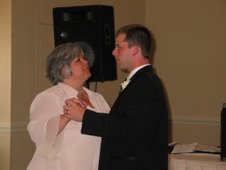References to the illnesses which plagued Dorothy Wordsworth are evident in both Thought’s on My Sick-bed (pg 293-294) and When Shall I Tread Your Garden Path? Yet, in both poems she refers to her love of nature and the outdoors to remind her of happier, healthier times…and she wishes or hopes for their return.
Speaking of her youth, she says “With busy eyes I pierced the lane I quest of known and unknown things, - The primrose a lamp on its fortress rock, The silent butterfly spreading its wings, . . .” I can visualize her eyes darting from one side of the landscape to another…looking to absorb everything possible. She knows that there are sights present that she has seen before, yet she also looks for “unknown” things, or things that perhaps she never saw before because she failed to see, or simply because they weren’t there. Either way, she views this as an exploration of sorts. Possibly referring to the brightness of the primrose, Dorothy calls it “a lamp.”
She then turns to her current condition and refers in both poems to her couch where she has rested. From 1832 when Thought’s on My Sick-bed was written until 1835 when When Shall I Tread Your Garden Path? Dorothy seems to have grown wearier of her illness and the thought of nature and gardens no longer lift her spirits.
